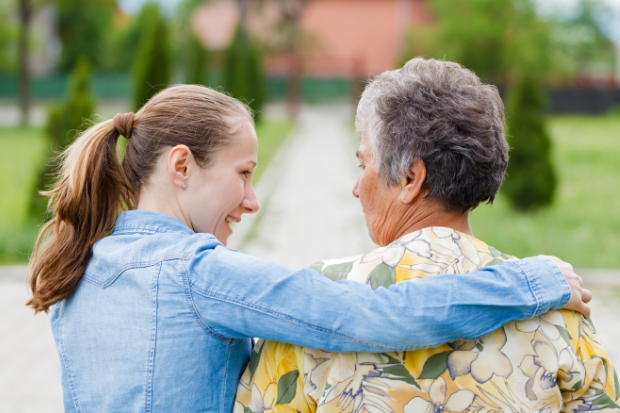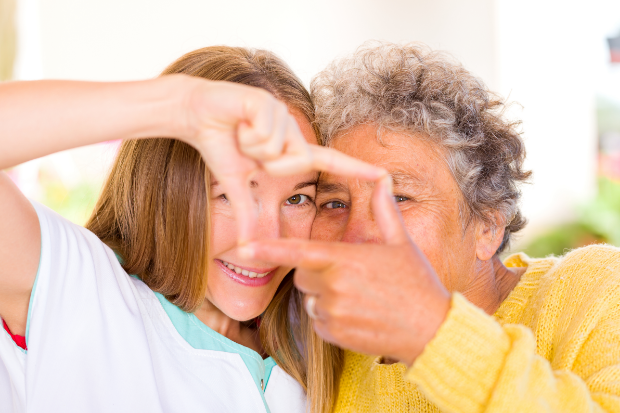Caring for Lola Linda at home: Dementia amid the COVID-19 pandemic

INQUIRER.net stock photo
(Dementia care in a pandemic: Second of two parts)
For the longest Rona Ferrera could remember, Lola Linda has always been a part of her life.
They are not blood relatives, but Rona has considered Lola Linda family ever since the latter came to their household to work as a helper when Rona was just 7 years old.
Rona is now 42 and a single mother to two young adults. When she gave birth to her youngest child 20 years ago, she asked Lola Linda if she could stay with them and help her care for her children.
“Pinakiusapan ko po siya [because] I need to work,” Rona told INQUIRER.net. (I requested her to stay because I needed to work.)
Lola Linda turned 75 last May 22, during a time when Metro Manila was under modified enhanced community quarantine due to the COVID-19 pandemic. For her birthday, the family celebrated at home with a simple chocolate cake.
Two years ago, something changed in Lola Linda. Although she has not been properly assessed and diagnosed by a doctor, as per Rona, Lola Linda started exhibiting signs of dementia, such as becoming forgetful and showing changes in behavior and mood.
Before the lockdown, Lola Linda would often go home late because she loves being outside and talking to the neighbors. Rona said there are times when Lola Linda would escape from the house, as well as take stuff from their neighbors, believing it is hers.
When COVID-19 struck and the lockdown was put in place, Rona initially felt relieved: she would be working from home and can focus on watching over Lola Linda. But as the lockdown stretched into months, caring for Lola Linda got even more challenging.
“Napakahirap dahil gumagawa siya ng paraan para tumakas,” she said. “May pagkakataon pang dahil sa pagtakas niya, natabig siya ng bike at [namaga] ang binti niya. Pinagalitan pa kami ng mga kapitbahay dahil pinabayaan [daw] namin [siya].”
(It’s so hard because she finds ways to escape. There was even an instance when because of her escaping, she was sideswiped by a bike. Her leg got swollen. Neighbors scolded us for allegedly neglecting her.)
In these pandemic times, Rona and her children must work together in caring for Lola Linda to ensure her safety. She is already an elderly person and at a higher risk for COVID-19. A typical day for them, thus, involves constantly reminding Lola Linda not to go out of the house, as well as not to forget to eat and take a bath.
“We really try to explain sa kanya ang sitwasyon, pinanood namin siya ng balita para alam niya ang nangyayari,” said Rona. “Dahil ‘di siya maka-stay sa loob ng bahay, [ina-allow] ko siya mag-stay sa garahe [because] maliit lang bahay namin at ugali na niyang lumabas kaya we consider. Nagagalit siya sa amin [kapag] sasawayin na wag lalabas ng gate.”
(We really try to explain to her the situation. We make her watch news programs so she knows what’s happening. Because she can’t keep herself from going out, I allow her to stay in the garage, because our house is just small and it’s been a habit of her to go out. We consider that. She gets mad at us when we prohibit her from going outside the gate.)
To keep her preoccupied, Rona lets her watch “Good Morning Kuya” every morning during breakfast. Rona’s children also helps around with the cooking, to make sure there’s always food ready at home so Lola Linda would not get hungry. Still, Rona admitted there are times when Lola Linda is really determined to leave the house and escape from their watch.
Rona added that they have tried explaining to Lola Linda she could be apprehended by police officers if found violating quarantine rules, which, among others, prohibit those below 21 and those above 60 years old from leaving their homes. Lola Linda, however, seems not to care about this and insists on going out.
Awareness, loneliness, depression among persons with dementia
Dr. Michelle Anlacan, neurologist and president of the Alzheimer’s Disease Association of the Philippines (ADAP), knows all too well the struggles involved in caring for persons with dementia during the COVID-19 pandemic.
According to Dr. Anlacan, dementia is the umbrella term for the syndrome where there is deterioration in memory, thinking and behavior that is profound enough to impede one’s capacity to perform daily activities. Dementia has many forms, the most common of which being Alzheimer’s Disease, as associated with advanced age.
She told INQUIRER.net that it helps to simplify the situation when a person with dementia would ask about the new reality imposed by the health crisis.
“However, given that most of them have poor short-term memory, the query is often repeated to the point of exasperation of the family/caregiver/health care professional. It always helps to be direct and polite,” she said. “Many will imitate family members (wearing mask, face shield), but some are uncomfortable and have no patience wearing them. It is for this reason that they should avoid going out of their homes unnecessarily. If their queries become [too] repetitive, it is advisable to distract and redirect their attention to something else.”
In her experience of observing her own patients with dementia, Dr. Anlacan shared that most of them initially felt happy with the lockdown.
“Most persons with dementia were initially happy with the lockdown since they saw their whole family at home all the time,” she said. “But as the weeks dragged into months, several issues arose and the patients developed many [behavioral and psychological symptoms of dementia]: apathy, aggression, agitation, anxiety, irritability, hallucinations, sleep and appetite changes.”
Dr. Anlacan also said that persons with dementia are more prone to experiencing loneliness and depression during the pandemic.
Although dementia corrodes memory over time, she shared that it does not always mean that those with dementia would no longer feel lonely or depressed.
“While there is still insight, they realize their failing memory, their difficulties and the things they can no longer do because of dementia. Overtime, this insight is lost and the patient will no longer be aware of what is happening,” she explained. “Nevertheless, it does not exempt them from loneliness and depression, in fact it may be harder to address since they cannot express their thoughts clearly.”

INQUIRER.net stock photo
Caring for persons with dementia, caring for caregivers
ADAP has been unceasing in its role to educate the public since the pandemic began. It regularly posts easy-to-understand information, tips and advice in Filipino that concern both caregivers and persons with dementia on its Facebook page, which the public can freely access and read.
The association suggests creative activities that families and caregivers can introduce to those with dementia, to keep them preoccupied at home during the pandemic. One of its suggestions is to do an around the world virtual tour by accessing platforms like YouTube, to show videos of different countries and attractions to the person with dementia.
ADAP also recommended going back to hobbies that the person with dementia used to do before, such as cooking, sewing, watching movies, singing and dancing. It helps to encourage them to share stories from their childhood and to ask certain questions about certain people. In this situation, families can bring out photo albums and old videos so the person with dementia can reminisce about the important occasions in their lives.
And just as important, ADAP recognizes those who feel burned out from caring for a person with dementia by highlighting the importance of self-care. As per ADAP, one must have ample rest, sleep and personal time for themselves.
Caregiving should also not be placed on the shoulders of just one person. Family members, instead, must all work together to care for their loved one with dementia.
“Caring for family members with dementia is a shared responsibility and they need to involve the whole family,” said Dr. Anlacan. “The primary caregiver needs adequate rest and sleep and time for herself.”
For Rona, the decision to willingly take on the heavy responsibility to care for a person with dementia could only mean it was a decision not just borne from duty, but ultimately, borne from love.
Lola Linda, the woman who once cared for Rona as a child and who later on cared for her own children years later, now needs their care. Rona knows that this time, it is her turn to look after Lola Linda.
“[Maaaring masasabi] ko ‘yung mga taong nag-aalaga ng mga ganitong kalagayan at minamalasakitan nila — nagagawa nila ito dahil sa pag-ibig. Ito ang katotohanan na naranasan ko personally,” she said. “’Yung pasensya mauubos in a certain situation, makakaramdam ka ng pagsuko, but love [is] still in our hearts. Na-re-refill ‘yung pasensya mo na nauubos na.”
(I can probably say that those who care for people in these conditions, they are able to do so because of love. This is the truth that I experience personally. Patience will be spent in a certain situation. You would feel like surrendering, but love is still in our hearts. When your patience is running out, love fills it up.) JB
RELATED STORIES:
A nurse on lockdown in a dementia village
Aging out: The fate of abandoned Filipino children who don’t get adopted
For more news about the novel coronavirus click here.
What you need to know about Coronavirus.
For more information on COVID-19, call the DOH Hotline: (02) 86517800 local 1149/1150.
The Inquirer Foundation supports our healthcare frontliners and is still accepting cash donations to be deposited at Banco de Oro (BDO) current account #007960018860 or donate through PayMaya using this link.